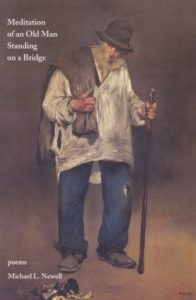.
.
.
.
SERENDIPITY
As I walk down the dirt road from my job, headed
slowly home, I pass a few people wandering here
and there as their work day ends; I amble past
an old home with a corrugated metal roof, bricks
holding down the sheets of metal from blowing away,
a light breeze tossing laundry on ropes strung between trees,
my mind wandering in a thousand directions
with no particular destination in mind, just
the pleasure of reverie–when I hear song,
not the radio, not a recording, but a small choir
singing in Kinyarwanda, six or seven
female voices and a couple of men, their
voices rising and falling from the home’s
living room, a beautiful repetitive melody
enhanced by constantly shifting harmonies,
counterpoint melodies, and one male voice
chanting or speaking underneath the rise
and fall, the same voice lifting in ecstatic
soaring flight above the others, a song at once
celebratory and deeply sad, the melody ascending
and tumbling, repeating itself again and again, every time
it seems to reach an end, the male leader
bursts into an impassioned chant which leads
all back into close harmonies which
stop my homeward journey; I stand still,
eyes shut, and listen, nearly weeping.
I hear someone close by and open my eyes to see
two young women passing by who ignore me but are
quietly singing with the song coming from the home.
I realize I have been standing in one place for ten minutes
or more. People at a nearby cross street are staring at me,
but I can’t move along; I sway in slow time
to the music which continues to flow through
the neighborhood; and then I realize a large vehicle
has stopped by me, and a Rwandan friend leans out the window
to ask whether I am okay. I explain why I am standing there,
and he says, “Ah, a choir,” and turns off
his engine with a smile to listen, only
to discover the music has ceased. I decline
a ride and walk homeward with the music
still rising and falling in my memory.
I do not know whether the music was religious,
or folk song, or political, or celebratory, or grieving,
but hours later I still hear the music
as I go about my nightly ablutions. I realize
I have been changed without ever seeing those
responsible for the change. I have heard
on a dirt road from a ramshackle home, music
rough-hewn, homemade, finer than what I could find
in a concert hall while entertained by highly trained
professional musicians. I have heard music
from the blood and marrow of people singing
because it defines who they are.
I have listened to the heartbeat of a people.
.
…………………………………………………………………….January 2013, Kigali, Rwanda
.
by Michael L. Newell
.
.
_______
.
.
Michael L. Newell was a long-time expat (23.5 years) who was an English and Theatre teacher. He has had more than 900 poems published in approximately 80 journals, most in the United States, a handful in England. A few of the journals in which he has appeared include. Bellowing Ark,. Current, . The Iconoclast, . Rattle, . College English, . Lilliput Review, . Ship of Fools, and . Verse-Virtual. . His most recent book . (from Bellowing Ark Press). is . Meditation of an Old Man Standing on a Bridge.. Newell currently lives on the south-central Oregon coast.
Click here .to access all of Michael L. Newell’s poetry published on Jerry Jazz Musician
To order a copy of the book, contact BELLOWING ARK PRESS 18040 7th Avenue NE Shoreline, WA 98155
.
.

.
.
.
.
.
.
.
.
.





























Michael: You … have overdone, yourself again. I don’t know how many times I have heard, just part of a melody, that stays with me. This affected me very much! Great feeling! Alan.
I am deeply touched by this poem and the way it so powerfully evokes music’s ability to move and change us, to bind, restore and make us new. Thank you.
Mike,
This one of my favorites! Your way with words (which connect us to music) and, perhaps more important to me, your connection to those you encounter in your journeys always amaze me.
I envy you.
Thank you for that, Michael. In these dark times we need all the serendipities we can get – and indeed the poems that re-create the serendipities for us.